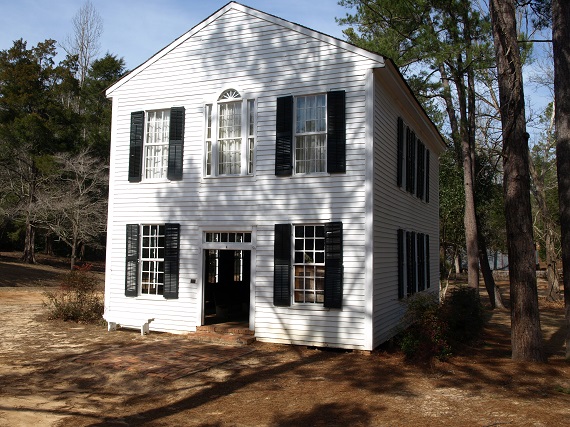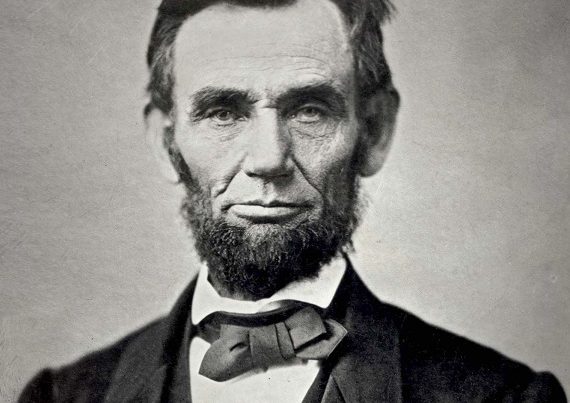In the Old South, only those children whose parents thought they needed education, attended school; many did not. Of those who did not, many were taught at home to read or to read and write. A higher percentage of Southerners than Northerners attended college, though students in Southern colleges were more interested in making and enjoying social contacts than in acquiring knowledge. Classical education persisted in the agricultural South longer than in the industrial North. Classical education was about the Greek passion for truth and beauty and the Roman genius for government. (This was not knowledge that the rulers of an industrial social system would believe it particularly desirable for their laborers and managers to possess.)
In 1859, a leading intellectual and college professor of the Old South made the case for a liberal education vs. a practical business education. According to that professor, the purpose of education should not be to prepare one for a business life; the purpose of education should be to balance the evil tendencies of the business life. As civilization advances, so also do evil tendencies advance. Therefore the need for a liberal education to balance them increases.
In early times, each individual man manufactured most of his own primitive tools, grew or slew most of his own food, built his own primitive abode, etc.; he was a generalist–each individual in those times was very nearly a complete reflection of humanity. Modern (1859) man is a specialist. “In proportion as civilization advances, and division of labor progresses, the field of social activity becomes more and more narrow…the absorption of the mind and sympathies in business becomes more and more complete, and, consequently, the intellect and the heart tend to become more and more contracted.” Thus, each individual in these times is only a fraction of humanity.
Division of labor and specialization are the necessary means by which civilization has advanced. It is the function of education to counteract their atrophying action on heart and intellect. Education must expand the mind and cultivate the general spirit. The function of both physical and mental education “is to develope the human being into symmetry and manly beauty–to produce strength, suppleness and agility–to cultivate, not efficiency in anyone department, but universal efficiency–not a capacity to do one thing perfectly but a capacity to grasp everything.” The experience of the work world “separates them [humans] more and more from one another so far as intellectual sympathy is concerned.” It is the proper function of a proper education to “lay a broad and deep basis of universal sympathy.”
The family, the church, and the school (remember, this was written in the antebellum South) together strive “against the materializing tendency of the world.”
The professor suggested that education be organized be as follows:
|
Science |
Art |
Philosophy |
|
mathematics |
language |
logic |
|
physical science |
literature |
psychology |
|
chemical science |
fine art |
metaphysical science |
|
organic science |
history |
theology |
|
geology |
|
|
The professor supplies commentary to explain and justify this design.
He would have the student study the ancient arts before turning to the modern arts; i.e., Greek and Latin before modern languages; ancient literature, fine arts, and history before modern, because study of simpler forms before complex forms permits philosophic rather than only superficial insights when the complex forms are studied.
Science and philosophy teach the ability to think; art teaches the ability to express.
Science teaches truth, philosophy teaches the process of reasoning, i.e., of using truth to arrive at further truth. The ability to reason and the knowledge of truth are to each other as the ability to chew and food are to each other–each is pretty useless without the other.
Mathematics teaches analysis; geology teaches the ability to generalize accurately. A mind with one of these abilities but not the other, is a one-sided mind.
Language and logic are the bases of understanding art and philosophy. To study the bases without studying the pinnacles, produces only a one-sided culture.
A leading Old South man of letters began and ended his article on a classical education by stating that one cannot become an author of great literature in the English language without first making a thorough study of the Greek language and ancient Greek literature. After heaping harsh criticism on people who deprecate classical education, he presented a case for study of the classics. He first described the benefits of the study of the ancient Greek language for training the youthful mind. Next, he pointed out that, just as for the author of fine literature, the best models for the philosopher, the orator, and the statesman, are in antiquity. The best education is had from study of ancient Greek, and the ancient literature including mythology, poetry, rhetoric, and history and biography. Thucydides, Tacitus, and Plutarchus are not equaled among modern historians; these three authors should be studied in preference to all others, ancient and modern. Ancient oratory and the Roman or civil law are also necessary subjects of study, according to our writer, and also, either the Christian philosophy or the school of Platonist philosophers.
By the end of the eighteenth-century, classical education had become wide-spread among Southern middling folk as well as gentlemen, and down to secession, they continued to receive a solid classical education. Private academies flourished across the South, and they taught the classics to a substantial number of children from middling as well as affluent families.
Reading aloud in groups, especially the family circle, was standard practice and encouraged the young to learn to read for themselves. Political speeches and religious sermons were the standard fare of these reading circles. This took place during the winter while the family gathered around the fire, the mother at her spinning wheel, the father mending harness leather. Or during the summer evenings after the supper dishes were washed and the father had lit up his pipe.
A highly recommended school text in the Old South, was B. R. Carroll’s Catechism of United States History. Charles Mills’s 1844 The History of Chivalry was assigned in Southern schools. Southern youth read Morte d’ Arthur in school. Every school boy had to read Caesar. Oliver Goldsmith wrote a history of Rome that was assigned in Southern Schools. Students aged 10 and up read Racine and Moliere. Girls’ schools assigned Ovid. Teachers used some of Ovid’s love poetry for instruction in manners and language. During the 1840s and 1850s, Thomas Roderick Dew’s Digest of the Laws, Customs, Manners, and Institutions of the Ancient and Modern Nations was standard fare in Southern academies and colleges. Some of these old titles are available from Kessinger Publishing. Some are available from large publishing firms.
Basic education for every Southerner who attended elementary school, academy, or college was study of the classics of ancient Greece and Rome. Up until Thomas Dewey and his ilk had a better idea, the classics, for hundreds of years, had formed a common curriculum throughout the Western world, thus every educated person in the Western world had a common foundation which gave them a common sympathy. And Southerners knew the constitutional, political, and military history of America’s Revolutionary Era. College students, of course studied additional subjects.
Southern students were taught the ancient Greek and Latin languages in order to give them hard training in ways of thinking and learning. On moral philosophy and politics, the ancients have been surpassed by the moderns, but their imaginative and historical literature is still as good as any. Southern thinking was especially much influenced by the imaginative and historical literature of the ancients; Southerners particularly liked ancient Greece literature. The best educated Southerners read Herodotus, Thucydides, Livy, Tacitus, Sallust, and Polybius; the best educated and many more besides read Plutarch’s Parallel Lives of Nobel Grecians and Romans; many also read Shakespeare’s plays which drew heavily from Plutarch. In humble Southern farm houses, Parallel Lives was nearly as common as the Bible.
Two works to introduce you to the ancient literature are Rutherford and Thornton. Rutherford’s aim “is to provide a short, accurate and readable guide to the works of Greek and Latin literature which have generally been found most important and interesting.” Thornton is a short and to the point guide for students who are about to enter college.
Publications consulted in writing this article:
Fox-Genovese, Elizabeth and Eugene Genovese, The Mind of the Master Class (2005), 128, 250, 254, 255, 258, 270, 280, 333, 339, 344, 348, and 684.
Joynes, Edward Southy. 1902. “School Training in the Early Days,” extract from “The ‘Old Field’ School,” in The Educational, May, 1902, reprinted in Library of Southern Literature, VII, 2870-2872, The Martin & Holt Company, 1907 & 1909.
Landrum, G. W. 1931. “Notes of the Reading of the Old South,” American Literature, 3, 1 (March), p. 60-71.
LeConte, Joseph. 1859. “The Principles of a Liberal Education,” Southern Presbyterian Review, 12 (Jul.), 310-335.
Poe, Edgar Allen. 1836. “The Classics,” Southern Literary Messenger, 2, 4 (Mar.), 221-233.
Rutherford, Richard. 2005. Classical Literature: A Concise History. Blackwell Publishing.
Thornton, Bruce S. 2003. A Student’s Guide to the Study of the Classics. Wilmington, DE: ISI Books.







